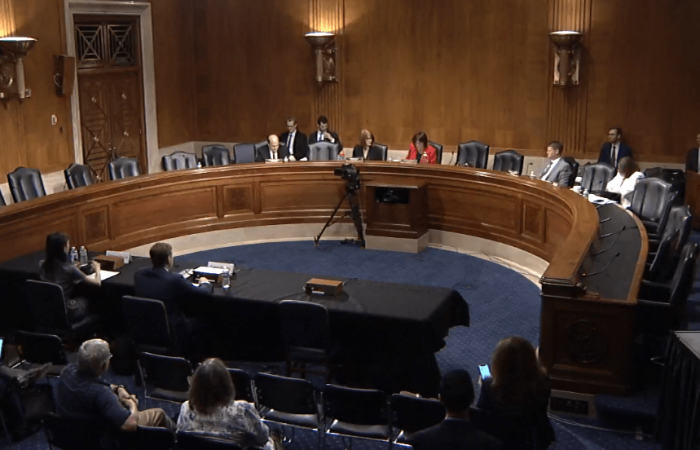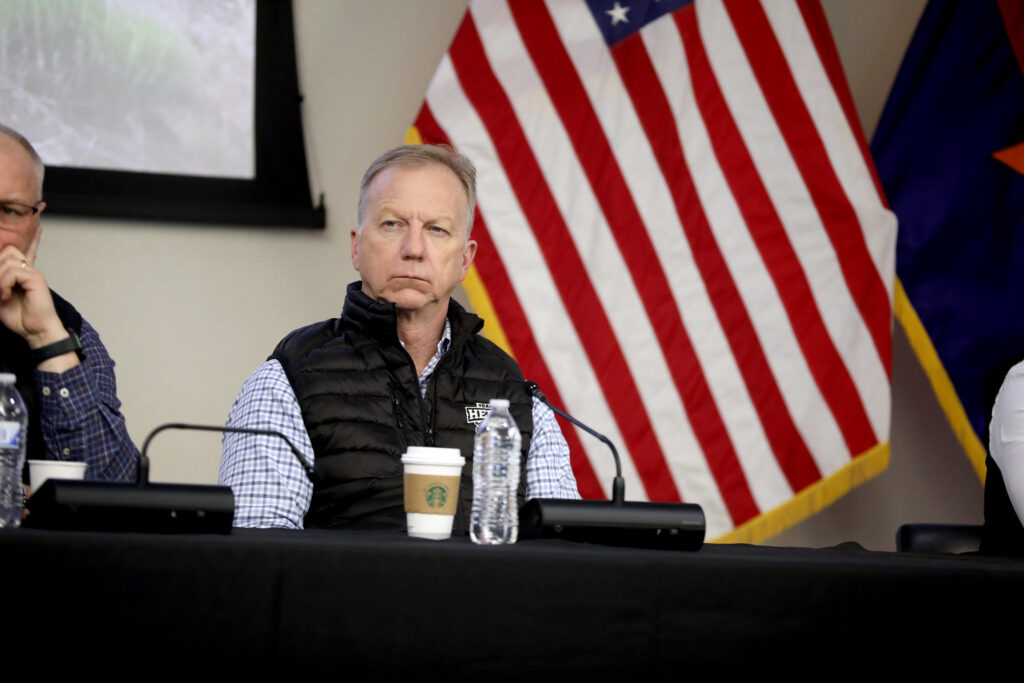On August 21, 2023, the U.S.-China Economic and Security Review Commission (USCC) held a hearing on “China’s Current Economy: Implications for Investors and Supply Chains.” The hearing was divided into two panels. Panel I, “China’s Domestic Financial Situation” featured three speakers: Logan Wright, Partner and Director of China Markets Research at Rhodium Group; Nicholas Borst, Vice President and Director of China Research at Seafarer Capital Partners; and Zongyuan Zoe Liu, Maurice R. Greenberg Fellow for China Studies at Council on Foreign Relations. Panel II, “U.S.-China Trade and Supply Chains,” featured two speakers: Christopher Gopal, former executive and global supply chain consultant; and Ilaria Mazzocco, Senior Fellow with the Trustee Chair in Chinese Business and Economics at Center for Strategic and International Studies.
Notable Statements:
- Wright argued that China’s economic slowdown is structural in nature and that “Beijing is no longer an economic pacing threat or likely to overtake the United States in any significant measure of economic power in the next two decades,” citing issues such as China’s property and local government debt crises. As such, U.S. policymakers should focus on specific issues such as China’s industrial policy and control of advanced technologies with military or dual-use applications.
- Despite the significance of the aforementioned concerns, Wright maintained that there is little reason for the U.S. to pursue general “financial decoupling measures” with China, e.g. by restricting stock purchase of Chinese consumer-focused companies or Chinese government bonds.
- In his written testimony, Wright further cautioned that U.S. efforts to financially decouple China could allow Beijing to blame the United States for decreasing foreign investment to China and divert public attention to inherent problems of China’s economic model.
- Meanwhile, Borst attributed China’s current economic slowdown to three “policy mistakes”: “a failure to moderate the real estate deleveraging campaign, a crackdown on the private sector that has damaged business confidence, and a failure to adequately prepare for the post-Covid era.”
- According to Borst, China will increasingly focus on its domestic economic challenges in the next few years, consequently placing U.S. policymakers in a strong negotiating position given China’s consistent and increasing need for foreign investment. Maintaining that “China is still one of the United States’ most important export and investment markets,” Borst called on U.S. policymakers to seize the opportunity and “seek greater market access and other reforms that will directly benefit American firms and boost exports.”
- Liu focused her testimony on China’s sovereign funds, cautioning that they have evolved their overseas investment strategy—e.g. by resorting to joint ventures and partnerships—in response to tighter investment screenings in selected countries. She also argued that the Chinese government may seek to advance non-government based financial infrastructure and financial systems in future overseas investment.
- Gopal, highlighting the significance of supply chain overreliance and resilience issues, recommended U.S. policymakers to continue to fund U.S. manufacturing capabilities and infrastructure, restrict access to critical technologies, and fund STEM (science, technology, engineering and mathematics) education in the United States.
- Mazzocco offered insights into China’s electric vehicle (EV) industry, which she considered to be one of the most successful cases of China’s industrial policy. According to Mazzocco, China has become a manufacturing export hub of electric vehicles for not only Chinese-owned companies but also multinational companies operating in China. Meanwhile, she noted how Chinese EV firms are also beginning to expand investment overseas, planning for manufacturing plants in Europe, Southeast Asia and Brazil.
- According to Mazzocco, Chinese companies now possess unique ‘know-hows’ and capabilities in the scalable production of EV, especially in the battery segment. As such, she concluded, it is extremely difficult to create affordable, globally competitive EV products in the United States in the medium term without allowing some involvement of Chinese companies. U.S. policymakers need more data and strategizing to identify under what conditions Chinese companies can and cannot play a role in American EV supply chains.
- Mazzocco also recommended that U.S. policymakers explore how trade tools could promote EV supply chain diversification without raising costs to consumers and work on coordinating with partner countries facing similar dilemmas.
Backgrounds and Takeaways:
Following weeks, if not months, of news reports on yuan depreciation, dropping stock prices, and the continuation of a “real estate crisis” in China, commentators have expressed an increasing interest in and concerns for the state of China’s economy. This USCC hearing reflected on and contributed to Washington’s heated discussions on China’s economic outlook. During the hearing, the five experts provided insights into long-standing problems in China, from the country’s slower-than-expected economic recovery from COVID to its property and local government debt dilemma.
Meanwhile, given that China’s economic slowdown does not seem to greatly affect critical sectors at the front line of the U.S.-China competition (e.g. semiconductor, electric vehicle and artificial intelligence), the specific policy implications of China’s domestic challenges appear to be limited and ambiguous at the moment. When offering policy recommendations during this USCC hearing, the five experts generally agreed on the need for some supply chain diversification, while Wright and Borst explicitly cautioned against full decoupling from China in trade and investment. The rest of their advice spread, with limited overlap, across areas including narrative about China’s economy, U.S. market access to China, and controls and monitoring of Chinese investments. When these policy issues are concerned, U.S. stakeholders might find themselves more heavily impacted by Beijing’s stance towards foreign investment and U.S.-China economic engagement, or by possible deliverables produced by Secretary of Commerce Gina Raimondo’s upcoming visit to China, despite the admitted significance of China’s economic status.




